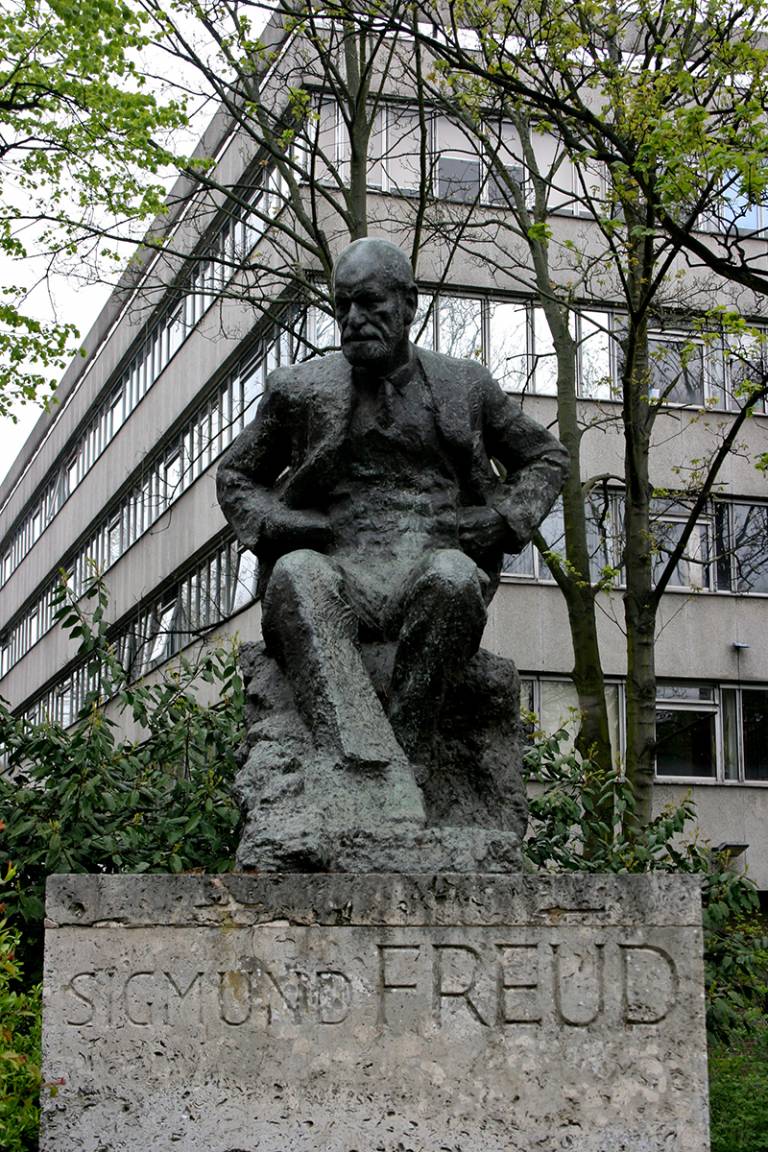POSTPONED - IAS Talking Points Seminar: From “Anaclitic Object-Choice” to “Attachment Security”
30 May 2022, 6:00 pm–8:00 pm

THIS EVENT HAS BEEN POSTPONED. NEW DETAILS WILL BE CONFIRMED IN DUE COURSE. The Genealogy of a Psychological Paradigm. With Dr Bican Polat (IAS). Respondents TBC
This event is free.
Event Information
Open to
- All | UCL staff | UCL students | UCL alumni
Availability
- Yes
Cost
- Free
Organiser
-
Institute of Advanced Studies
Location
-
IAS Common GroundGround floor, South Wing, Wilkins BuildingLondonWC1E 6BTUnited Kingdom
Attachment theory is one of the most frequently cited theories in contemporary psychology, providing explanatory concepts for understanding the social-emotional dynamics of parent-child relationships. The theory was formulated by the British psychiatrist John Bowlby between 1958 and 1969. As important as the formulation of the theory was the two empirical research programs developed respectively by Bowlby at the Tavistock Institute of Human Relations (London, UK) in the 1950s and by his collaborator Mary Ainsworth at Johns Hopkins University (Baltimore, US) in the 1970s. This talk aims to place the development of these research programs in social-historical context. I reconstruct the history of the attachment paradigm against transformations in social practices directed at parent-child relationships in America and Britain in the early twentieth century. My reconstruction highlights the influence of social and administrative objectives on psychological inquiry and traces the origins of the attachment concept to the child guidance clinics of the 1920s, a transatlantic initiative implemented to prevent juvenile delinquency and promote mental hygiene. Against this institutional background, I explore the development of the psychoanalytic idea of “attachment” (i.e. “anaclitic object-choice”) through the work of research communities that flourished on both sides of the Atlantic over the span of six decades.
Focusing on investigative practices, I analyze the transmutation of the “attachment” concept from its articulations in the maternal deprivation debate (1930s-40s), via its subsequent elaboration in Bowlby’s Tavistock Department (1950s-60s), to its formalization in Ainsworth’s research program at Johns Hopkins University (1970s-80s). I show how an observational procedure Ainsworth designed during her studies provided a means to gauge qualitative differences in parent-child relationships according to neopositivist standards and paved the way for the establishment of a research paradigm in developmental psychology. Ainsworth’s Strange Situation Procedure allowed for the classification of individual differences in children’s attachment relationships on a scale ranging from “secure” to “insecure” types and formalized the construct of “attachment security” (Ainsworth et al 1978). This exemplar thus placed attachment theory within a statistical network and enabled the correlation of its constructs with other quantifiable indicators of psychological distress and well-being. In due course, Ainsworth’s followers in other American universities developed new measures that helped turn Bowlby’s naturalistic hypothesis into a flourishing research paradigm in academic psychology. Today, the attachment constructs make it possible to correlate an expanding set of risk and protective factors with a wide range of developmental outcomes in children. My account attributes the success of attachment theory to its capacity to capture such population trends and thereby serve preventive ends.
Drawing on both textual and contextual evidence, I show that the articulation of the concept of “attachment security” in Ainsworth’s program depended on the reduction of the intentional meaning of a psychoanalytic concept by a neopositivist methodology. I argue that this semantic reduction was necessitated by a pragmatic shift in the normalizing techniques of Anglo-American psychiatry from their disciplinary origins in nineteenth century asylum practice to the current procedures of risk-management characteristic of late modernity. Seen from a practice-oriented, long durée perspective, the advent of attachment theory reflects a modification in discourse whereby the qualitative variability of parental intimacy is made quantifiable within the confines of a risk-based knowledge system and deployed to prevent interpersonal risks and individual vulnerability. Examining shifts in investigative practice, my account explains theoretical advances in attachment research from the perspective of how they achieved the preventive objectives of a decades-long strategy adopted to capture the qualitative transactions of the family
Speaker
Dr Bican Polat
(IAS Visiting Research Fellow)
Respondents
TBC
Image attribution: Photograph by Mike Peel (www.mikepeel.net)
All welcome. Please follow this FAQ link for more information. All our events are free but you can support the IAS here.
 Close
Close

